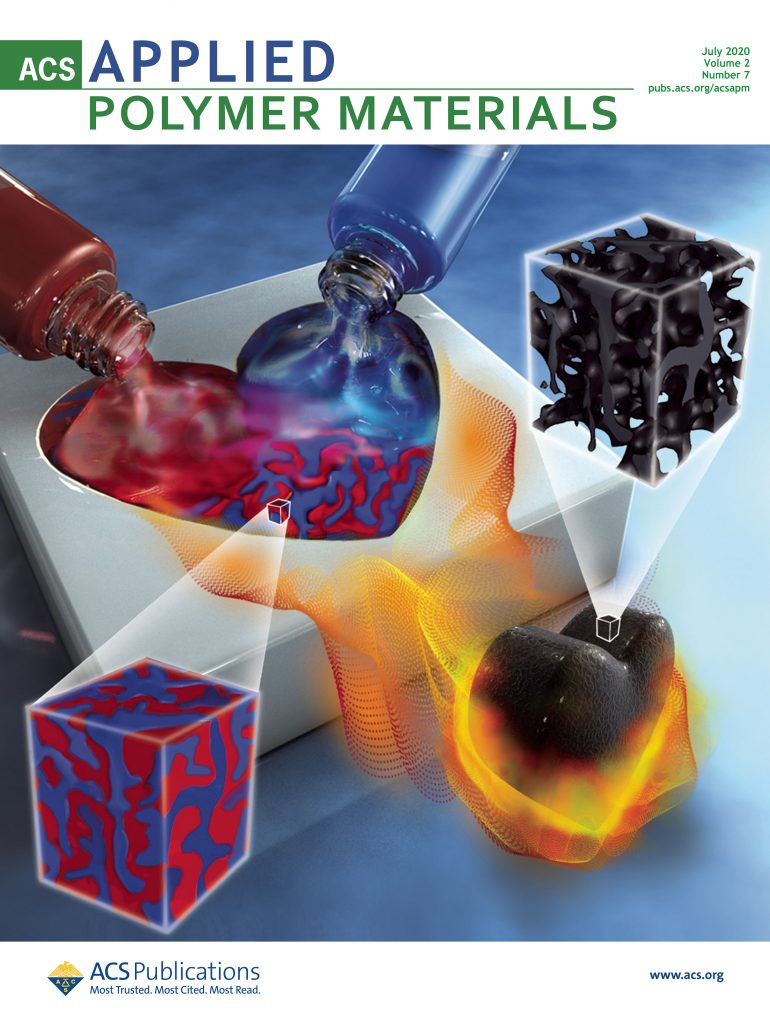含钴的聚硅氧烷:催化合成、结构和特性
IF 4.4
2区 化学
Q2 MATERIALS SCIENCE, MULTIDISCIPLINARY
引用次数: 0
摘要
提出了合成非交联和交联含钴聚硅氧烷(Cc-聚硅氧烷)的两种不同催化方法,分别是铜催化叠氮-炔环加成反应(CuAAC)和铂催化氢硅烷化反应。乙炔基六氟磷酸钴与叠氮取代的低聚/聚硅氧烷进行 CuAAC 反应,可获得 Cc 取代单元含量最高的 Cc-低聚/聚硅氧烷,高达 91 摩尔%,而与聚甲基氢硅氧烷进行水硅烷化反应的 Cc 取代单元含量仅为 53 摩尔%。通过 1H、13C{1H}、29Si{1H} NMR 和紫外-可见光谱(UV-ray),确认了所获得的 Cc-醇基/聚硅氧烷的结构。核磁共振和紫外-可见光谱证实了所获得的 Cc-oligo/聚硅氧烷的结构。由于聚硅氧烷链上附有亲水性钴烯阳离子分子,非交联cc-醇基/聚硅氧烷主要溶于极性溶剂(丙酮、CH3OH、CH3CN 和 H2O),这使它们有别于典型的聚二甲基硅氧烷和含二茂铁的聚硅氧烷。所有获得的 Cc-醇基/聚硅氧烷都具有氧化还原特性。Cc-oligo/polysiloxan 的循环伏安图包含两对氧化还原峰,分别对应于 CoII/CoIII(E1/2 ≈ -1.4 V)和 CoI/CoII(E1/2 ≈ -2.3 V)。交联的 Cc 聚硅氧烷在空气和氩气中的热稳定性可达约 230 °C。本文章由计算机程序翻译,如有差异,请以英文原文为准。

Cobaltocenium-Containing Polysiloxanes: Catalytic Synthesis, Structure, and Properties
Two different catalytic approaches to synthesize non-cross-linked and cross-linked cobaltocenium-containing polysiloxanes (Cc-polysiloxanes) were proposed and represent copper-catalyzed azide–alkyne cycloaddition (CuAAC) and platinum-catalyzed hydrosilylation reactions. CuAAC of ethynylcobaltocenium hexafluorophosphate with azide-substituted oligo/polysiloxanes leads to obtain Cc-oligo/polysiloxanes with the highest Cc-substituted unit content up to 91 mol % compared to the hydrosilylation reaction with polymethylhydrosiloxane (53 mol %). The structure of the obtained Cc-oligo/polysiloxanes was confirmed by 1H, 13C{1H}, 29Si{1H} NMR, and UV–vis spectroscopies. The non-cross-linked Cc-oligo/polysiloxanes are predominantly soluble in polar solvents (acetone, CH3OH, CH3CN, and H2O) due to hydrophilic cobaltocenium cationic moieties attached to the polysiloxane chain, making them different from typical polydimethylsiloxane and ferrocenyl-containing polysiloxanes. All the obtained Cc-oligo/polysiloxanes exhibit redox properties. Cyclic voltammograms of the Cc-oligo/polysiloxanes contain two pairs of redox peaks corresponding to CoII/CoIII (E1/2 ≈ –1.4 V) and CoI/CoII (E1/2 ≈ –2.3 V). The cross-linked Cc-polysiloxanes are thermally stable to approx. 230 °C both in the air and argon.
求助全文
通过发布文献求助,成功后即可免费获取论文全文。
去求助
来源期刊

ACS Applied Polymer Materials
Multiple-
CiteScore
7.20
自引率
6.00%
发文量
810
期刊介绍:
ACS Applied Polymer Materials is an interdisciplinary journal publishing original research covering all aspects of engineering, chemistry, physics, and biology relevant to applications of polymers.
The journal is devoted to reports of new and original experimental and theoretical research of an applied nature that integrates fundamental knowledge in the areas of materials, engineering, physics, bioscience, polymer science and chemistry into important polymer applications. The journal is specifically interested in work that addresses relationships among structure, processing, morphology, chemistry, properties, and function as well as work that provide insights into mechanisms critical to the performance of the polymer for applications.
 求助内容:
求助内容: 应助结果提醒方式:
应助结果提醒方式:


